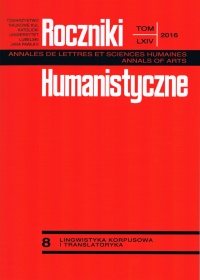Neology and Translation, or How to Shepherd a Squirrel Across the Street
Abstract
In this paper, neology is considered in its relationship with translation. The purpose of this paper is to outline an appropriate methodology to manage the translation of neologisms and overcome the difficulty they present. The theme is illustrated by a concrete example (French/English) showing the relevance of document analysis to reach a satisfactory solution. The steps taken within the working method are focused on the use of new terms in context by specialists of the subject area, insofar as neologisms are integrated in language only when they are accepted by the community who is supposed to use them.
References
Baillie, Dominique, 2012, SOS Ecureuil roux, http://grifouniou.free.fr/sosecu2
Bréal, Michel, 1897, Essai de sémantique, FB Editions.
Dubois, Jean (dir.), 1994, Dictionnaire de linguistique et des sciences du langage, Paris, Larousse.
Durieux, Christine, 1988, Fondement didactique de la traduction technique, Paris, Didier Erudition [2ème éd. 2010, Paris, La Maison du Dictionnaire]
Guilbert, Louis, 1976, La créativité lexicale, Paris, Larousse.
ISO 1-1988 – Recueil de normes Documentation et information.
Le Grand Robert de la langue française, 2001, Paris.
Rey-Debove, Josette, 1998, La linguistique du signe, Paris, A. Colin.
Sablayrolles, Jean-François, 2008, Néologie et terminologie dans les dictionnaires, Paris, H. Champion.
Copyright (c) 2016 Roczniki Humanistyczne

This work is licensed under a Creative Commons Attribution-NonCommercial-NoDerivatives 4.0 International License.





